Advertisement
Mass. advocates work to get most out of ARPA funding to house people who are homeless
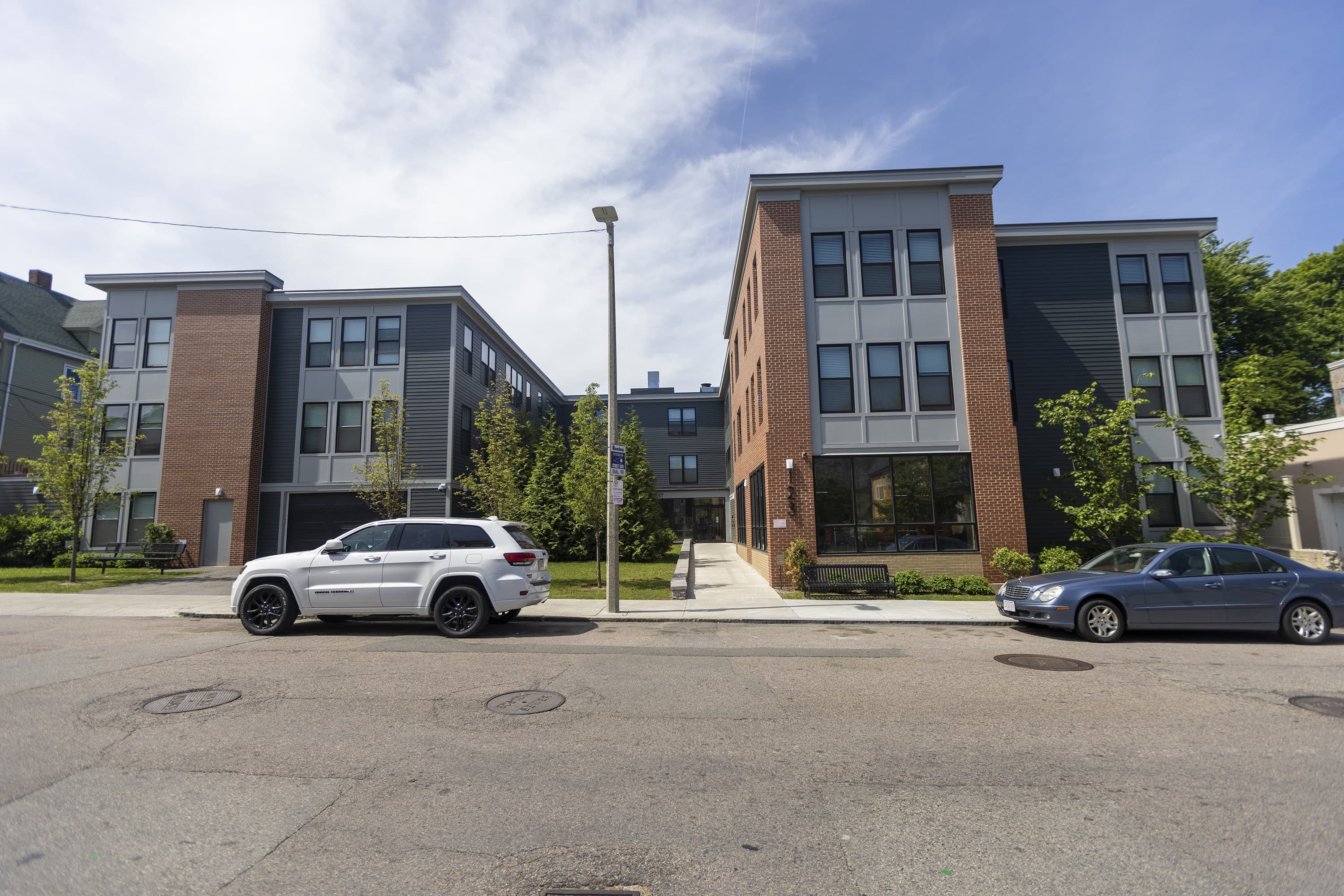
A group of advocates and social service providers is trying to make sure Massachusetts gets as much supportive housing as possible out of federal pandemic relief money.
Late last year, Gov. Charlie Baker signed a nearly $4 billion package into law, with funds from the American Rescue Plan Act, or ARPA. It includes $150 million for permanent housing with support services; much of it is designated for people who've been homeless or are vulnerable to housing insecurity.
In permanent supportive housing, tenants have case managers who help them find and keep up with services including mental health treatment, job training and budgeting.
The ARPA funds can go a long way in the fight against homelessness, according to Christi Staples, vice president of policy and government relations at United Way of Massachusetts Bay and Greater Merrimack Valley.
"It is the largest single infusion of funding for supportive housing, specifically, that the commonwealth has received," Staples says. "So that alone is a game changer."
Staples leads a loose coalition of more than 70 social service providers, advocates, developers and philanthropists. The group is developing a plan to scale up permanent supportive housing for people experiencing homelessness in Massachusetts.
Staples says the coalition asked for the ARPA funding for supportive housing and wants to make sure there's a vision for it, so it has the greatest possible impact.
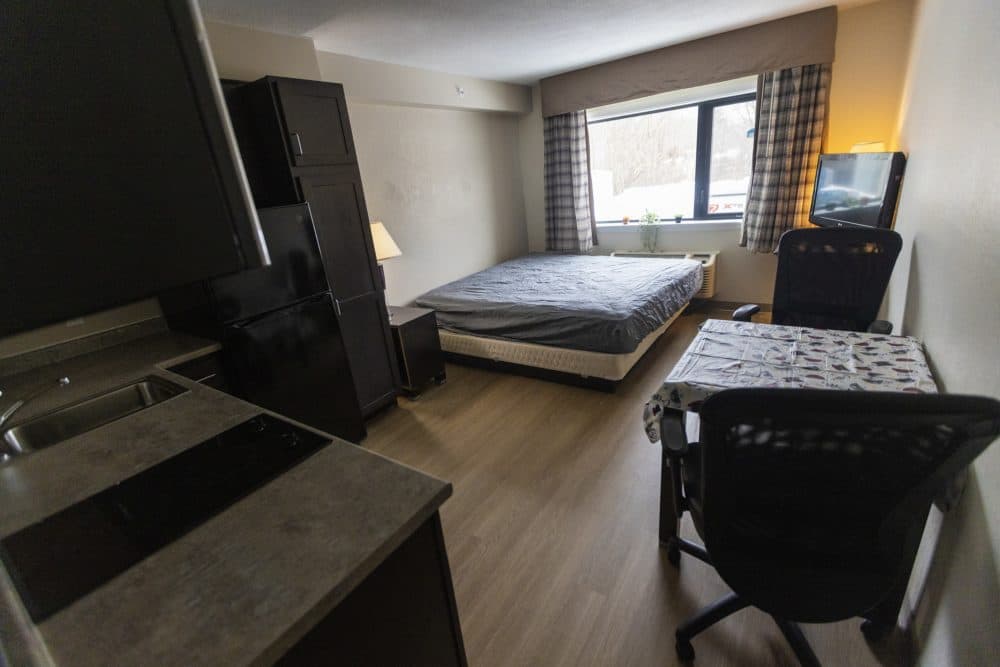
"Without a strategy and really looking at the population that needs the housing and where the gaps are, we are not actually being strategic in ending homelessness," she says. "It is a piecemeal approach for pockets of intervention."
One of the coalition's first priorities is to collect data on homelessness. The group wants to come up with a clear number of permanent supportive housing units that should be built in each region of the state.
As of 2020, the most recent year with complete data, Massachusetts had about 8,600 units for unaccompanied adults coming out of homelessness and more than 1,700 for families that were homeless.
According to Staples, the state likely needs about 1,800 more supportive apartments for adults who are chronically homeless, but the data aren't finalized. Estimates for other populations, including families and youth, aren't clear.
"Without a strategy and really looking at the population that needs the housing and where the gaps are, we are not actually being strategic in ending homelessness."
Christi Staples
Social service leaders have long said they want a plan from the state to create a robust supply of permanent supportive housing.
"I would say we've been able to accomplish a lot, but it did take a coalition to come together to say silence is not an option here," Staples says.
No one from the Massachusetts Department of Housing and Community Development (DHCD) agreed to be interviewed for this story. However, a spokesperson says the agency has had an annual round of funding for permanent supportive housing developments since 2014. And early in the pandemic, it asked for innovative proposals to convert buildings such as motels or hotels into permanent supportive housing.
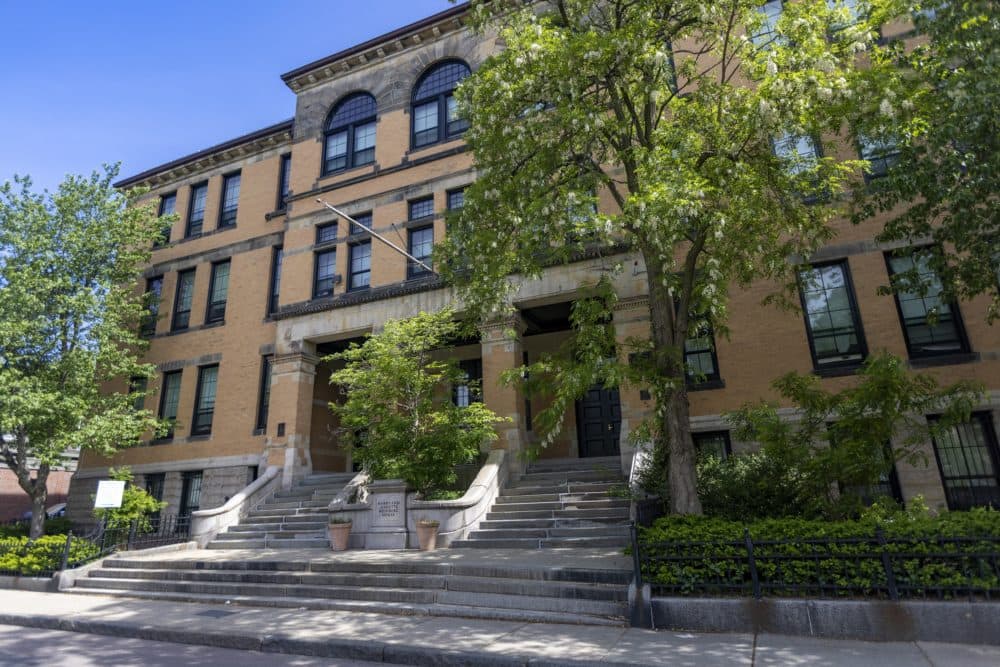
According to advocate Joyce Tavon, providing some funding for individual projects isn't the same as creating a proactive statewide plan.
"We have an enormous crisis," says Tavon, senior director of policy and programs at the nonprofit Massachusetts Housing & Shelter Alliance. "We have such a housing crisis, such a scarcity of supply."
An increase in street homelessness during the pandemic shows that the state and every community need to break down barriers to housing development, she says. People came from all over the region to a huge tent encampment near Massachusetts Avenue and Melnea Cass Boulevard in Boston — or 'Mass. and Cass' — before the city cleared it out and worked with social service organizations to get many people into treatment and housing.
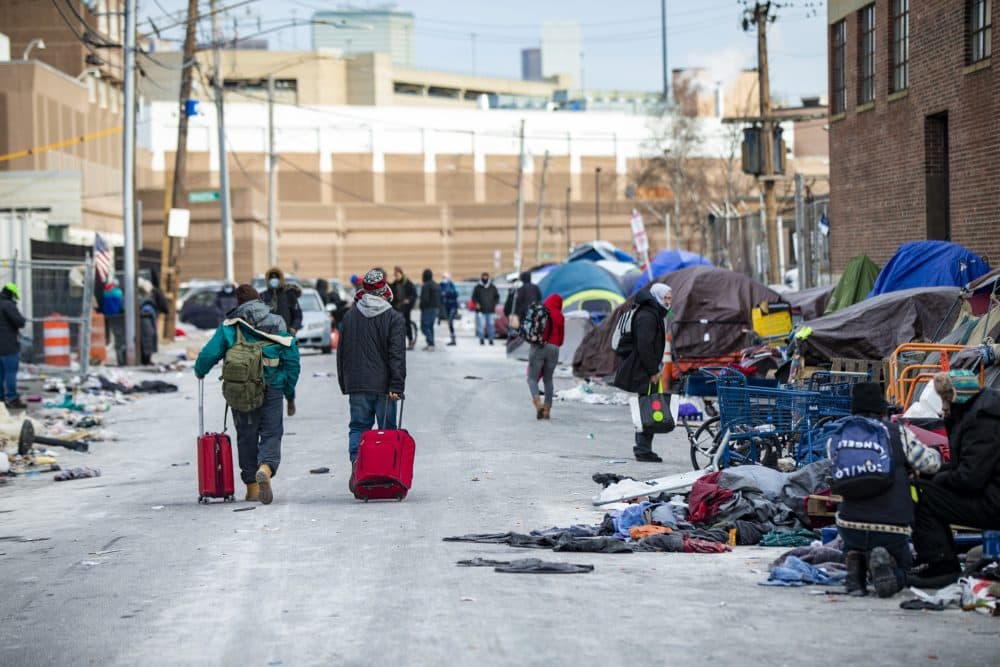
"We are dealing with a humanitarian disaster. Absolutely, we saw it with 'Mass. and Cass,' but it's happening in other places — smaller versions of that encampment," Tavon says. "So we need the state also to assist with how do we get municipalities to ease up a little on their restrictive zoning? And what is it going to take to get more projects that provide supportive housing? And not leaving it just to the kind of homeless service/housing provider, like, 'You go figure it out.' "
Here's how the ARPA funding breaks down:
- $15 million is targeted to permanent supportive housing for people who've been living outdoors or in homeless shelters;
- $50 million is for supportive housing for people — including families — who are chronically homeless;
- $65 million is dedicated to affordable housing that is paired with services for those who've fled domestic violence or human trafficking, clients of the state's Department of Mental Health, seniors and others
- The final $20 million will go toward supportive housing for veterans.
Advertisement
Father Bill's & MainSpring, an organization on the South Shore that shelters and houses people experiencing homelessness, is about to finish creating 69 units of permanent supportive housing in a former Rodeway Inn in Brockton. The state funded the conversion project after it put out that call for innovative proposals a few months into the pandemic. It also funded a project in Boston.
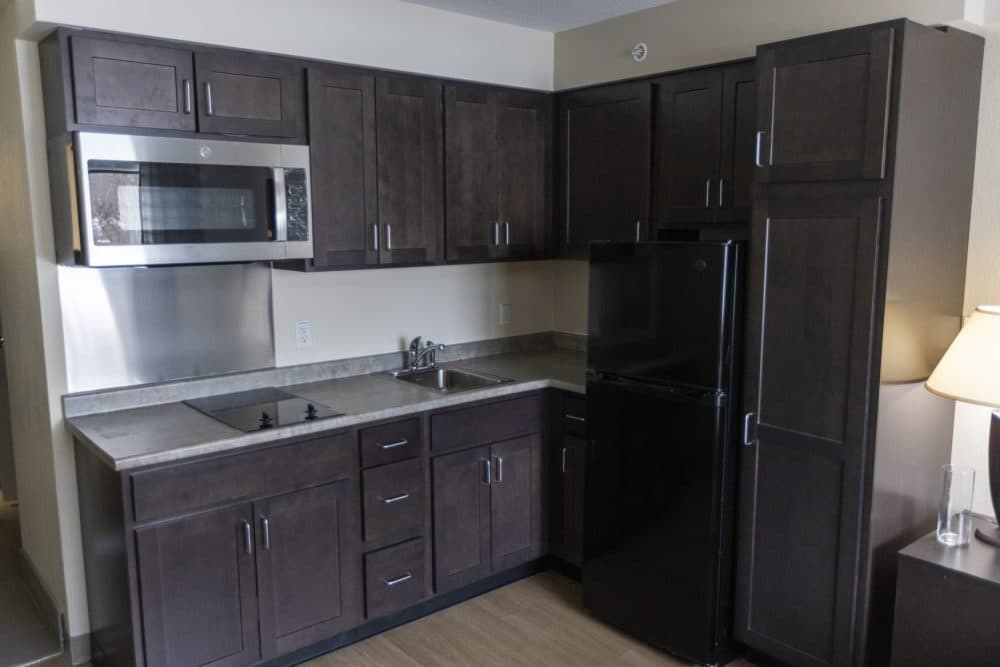
John Yazwinski, president and CEO of Father Bill's & MainSpring, says the hotel-to-housing development is an example of what can be done with the ARPA funding — if it's used wisely and other resources are in place. Creating housing is just the beginning; providers have to keep tenants stable.
"We've never had this opportunity," he says. "Having the capital — having that ARPA money — is great. But we still need to see a commitment from the state about like, how are we going to have the operating money ... and how are we going to have the services?" Yazwinski says. "As great as this project is, we were still begging for the operating subsidies, and we got it. And we're piecemealing the services from a variety of funding sources."
DHCD says this year, it funded services to turn 200 existing housing units in the state into supportive housing.
Meanwhile, Yazwinski points out the 69 new units in Brockton make only a dent in the need. For every five people who move out of his organization's MainSpring shelter, he says, six people come in looking for a bed.
This segment aired on June 2, 2022.
